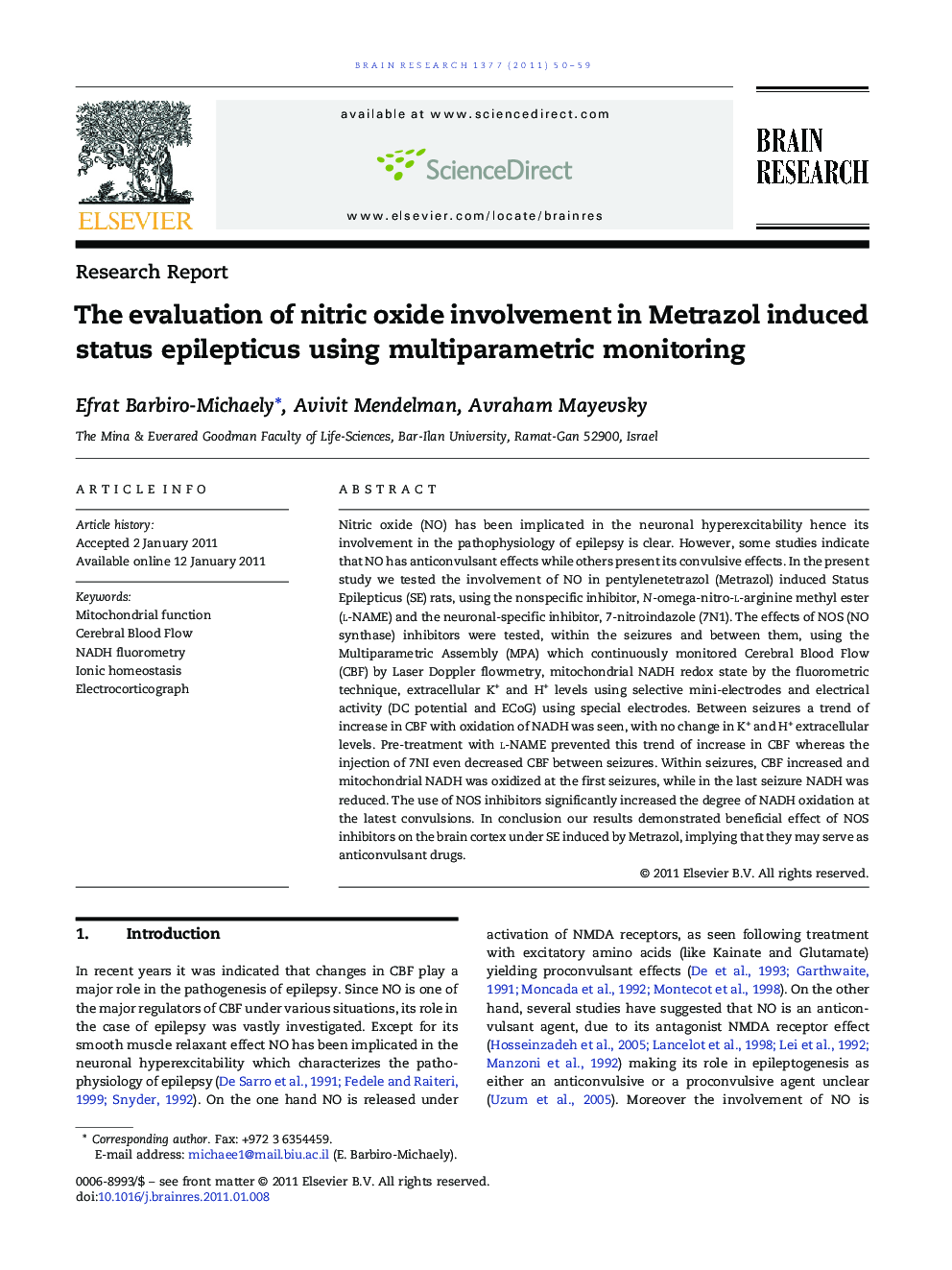| Article ID | Journal | Published Year | Pages | File Type |
|---|---|---|---|---|
| 4326171 | Brain Research | 2011 | 10 Pages |
Nitric oxide (NO) has been implicated in the neuronal hyperexcitability hence its involvement in the pathophysiology of epilepsy is clear. However, some studies indicate that NO has anticonvulsant effects while others present its convulsive effects. In the present study we tested the involvement of NO in pentylenetetrazol (Metrazol) induced Status Epilepticus (SE) rats, using the nonspecific inhibitor, N-omega-nitro-l-arginine methyl ester (l-NAME) and the neuronal-specific inhibitor, 7-nitroindazole (7N1). The effects of NOS (NO synthase) inhibitors were tested, within the seizures and between them, using the Multiparametric Assembly (MPA) which continuously monitored Cerebral Blood Flow (CBF) by Laser Doppler flowmetry, mitochondrial NADH redox state by the fluorometric technique, extracellular K+ and H+ levels using selective mini-electrodes and electrical activity (DC potential and ECoG) using special electrodes. Between seizures a trend of increase in CBF with oxidation of NADH was seen, with no change in K+ and H+ extracellular levels. Pre-treatment with l-NAME prevented this trend of increase in CBF whereas the injection of 7NI even decreased CBF between seizures. Within seizures, CBF increased and mitochondrial NADH was oxidized at the first seizures, while in the last seizure NADH was reduced. The use of NOS inhibitors significantly increased the degree of NADH oxidation at the latest convulsions. In conclusion our results demonstrated beneficial effect of NOS inhibitors on the brain cortex under SE induced by Metrazol, implying that they may serve as anticonvulsant drugs.
Research Highlights►NOS inhibitors have beneficial effect on brain cortex under status epilepticus. ►NOS inhibitors may serve as anticonvulsant drugs. ►NADH monitoring in addition to CBF monitoring during seizures has an advantage.
